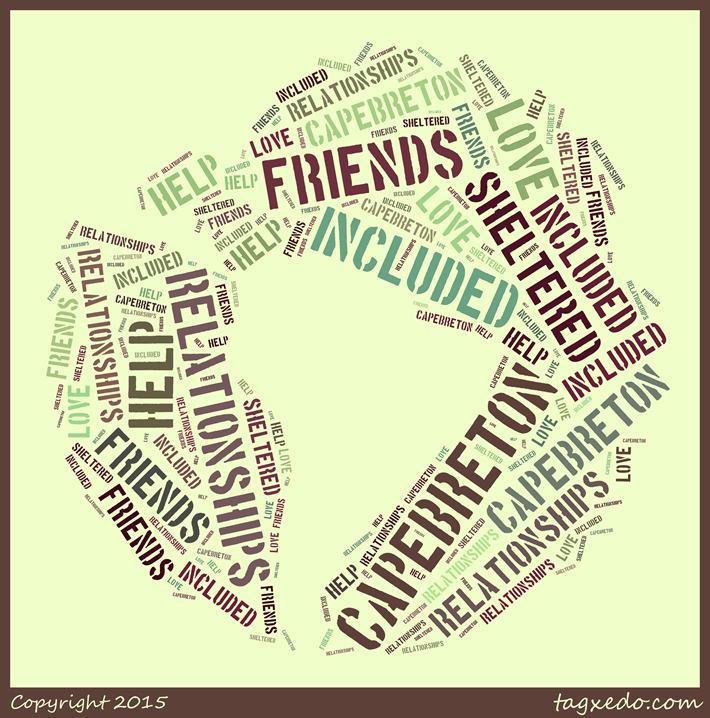
“Hi Cape Breton. I’m here trying to make friends!” I say this knowing you may not like what I have to say next.
Like many others that have come before, I’ve been drawn to this place because of culture, uniqueness and a warm welcome. Well, sort of a warm welcome. As a visitor I had mixed experiences. Some people would talk my ear off, and others wouldn’t really give me the time of day, although the warm welcome has been part of tourism marketing for Cape Breton for several years. As a new resident I called the Cape Breton Welcoming Committee who said they would be sending me a welcome package to the door of my new house and it never came.
There is the “come from away” syndrome - something that brings people together to bond from the misfortunes of those not fortunate enough to be born here (my definition). Though legendary, I really don’t think that things are as simple or general as that. Being from away doesn’t make one an outcast by default in Cape Breton. I think there is something more subtle at play here.
Cape Breton is place of cultural pride, perhaps unparalleled in Canada. The geography is part of what defines it, along with the generational history and ancestral bonds of people who mostly suffered but also prospered in this place I call home. The culture is what brings people here. They are curious. They want to be part of it. They want to hear all the stories. And Cape Bretoners love to share these stories. It make the place unique, and it is so very interesting. But these cultural ties are also what isolate people. People hold on to their culture so tight with like minded people that they refuse to let anyone in, even a little. This doesn’t just happen with people from away. Look at the various communities - New Waterford and Dominion for instance. In the past they were less accessible to each other. It’s like the past is still the present. One researcher attributed this to clan system traditions that were still subconsciously at play in the present day.
It has been no problem for me making acquaintances. People are good at small talk if they are forced into it. It’s been a little more challenging than other places to do this but not impossible. It’s making friends that is the real challenge. For the longest time I thought it was me but I really haven’t had problems anywhere else, and I've heard this story from many imports. There is this sense that people from away need to stick together because it is difficult to fully integrate. All this is doing is creating another insular group, following the lead of others. Dating someone that lives here did open some doors, but that can only take you so far. After the breakup I was back to square one and more confused than ever when people stopped talking to me.

I don’t think it is like this everywhere in Cape Breton. CBRM has been a bit of a trouble spot for me and many others I talk to in a similar position. People say it’s “small town mentality”. But if you take Cape Breton Regional Municipality as a whole it is pretty big, close to 100,000 people, similar to places like St. John’s NL, Thunder Bay ON, Langley BC. The difference I guess is that Cape Breton communities are still thinking of themselves as the smaller communities in all aspects even though they really aren’t that far apart, have similar interests and face the same problems. This really poses a challenge with infrastructure, attracting businesses, social issues and tourism planning. It is also a huge challenge for outsiders. Groups of people with shared interests stick together and seem pretty leery to let anyone else into their circle.
In May of 2015 the Nova Scotia Ministry of Immigration announced $174,000 in funding for new welcoming initiatives for immigrants to Cape Breton. It must be a huge culture change for new immigrants. Immigration, new ideas and perspectives are critical to a prosperous Cape Breton. In fact, they always have been since European settlement.
So what needs to change? It’s not only about investing to make sure people new to Cape Breton feel welcomed, it’s also about making Cape Bretoners feel more comfortable with new residents. People can still embrace culture and their way of life in times of change. The world is always changing. It can be embraced in hopes of a prosperous future for Cape Breton or it can be held on to until their is nothing left. New residents need to be part of the solution. How can they be included and feel comfortable living in Cape Breton?
Chris Bellemore is a blogger from Ontario that moved to Cape Breton Island and is logging his experiences in this strange and wonderful place.
https://www.facebook.com/chris.bellemore
https://soundcloud.com/crispbellemono





14
Log In or Sign Up to add a comment.- 1
arrow-eseek-e1 - 4 of 4 itemsFacebook Comments